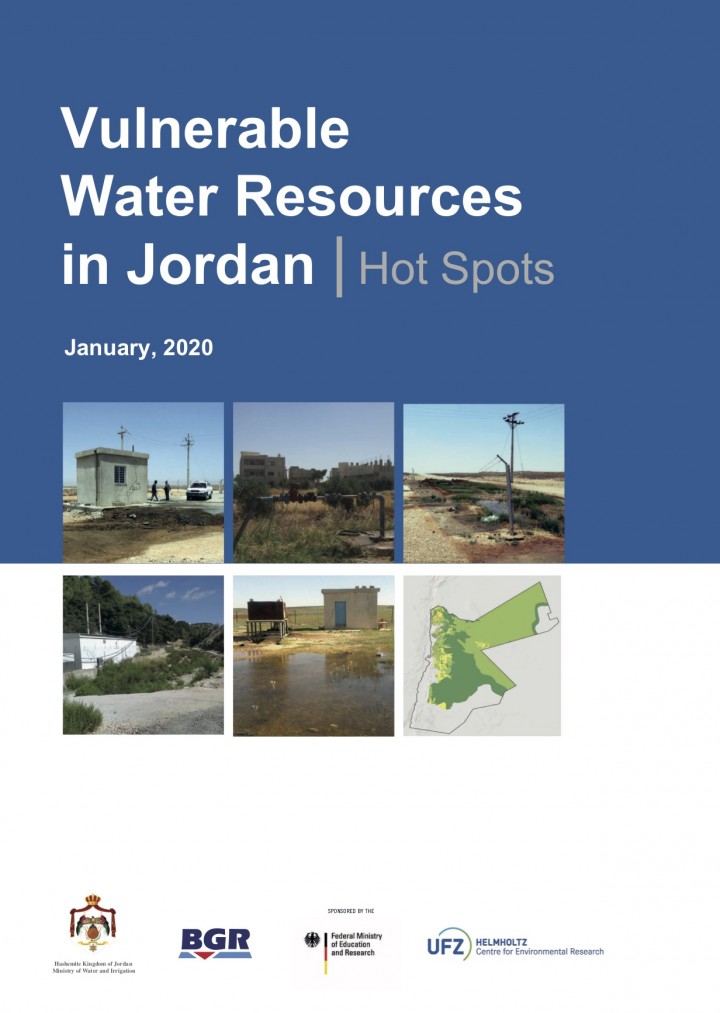Vulnerable Water Resources in Jordan: Hot Spots Breulmann, M., Brückner, F., Toll, M., van Afferden, M., Becker, M. Y., Al-Subeh, A., Subah, A., Müller, R. A. (2020)
The main aim of this study originated from a request by the National Implementation Committee for Effective Integrated Wastewater Management – NICE to review and update the previously developed list of Hot Spots. Hot Spots are defined as areas where groundwater resources, through leakage of domestic wastewater from cesspools, septic tanks, or sewage networks or through inappropriate handling of wastewater, have been contaminated or are expected to be contaminated. Based on multi-dimensional criteria i.e. people served, level of pollution, frequency of pollution and the presence of on-site treatment, 16 Hot Spots were identified. The identified Hot Spots, in combination with the Groundwater Protection Zones and Groundwater Vulnerability Maps, can be seen as an important decision support tool for stakeholders and decision makers when deciding where wastewater treatment plants will have the biggest impact for groundwater protection.
Bibliographic information
Breulmann, M., Brückner, F., Toll, M., van Afferden, M., Becker, M. Y., Al-Subeh, A., Subah, A., Müller, R. A. (2020). Vulnerable Water Resources in Jordan: Hot Spots Ministry of Water and Irrigation with support from the Helmholtz Centre for Environmental Research – UFZ and the Federal Institute for Geosciences and Natural Resources (BGR), Jordan
Filter / Tags
Case studies in other formatsEnglish
Downloads

Published in: 2020
Pages: 51
Publisher:
Ministry of Water and Irrigation with support from the Helmholtz Centre for Environmental Research – UFZ and the Federal Institute for Geosciences and Natural Resources (BGR), Jordan
Author(s):
Breulmann, M., Brückner, F., Toll, M., van Afferden, M., Becker, M. Y., Al-Subeh, A., Subah, A., Müller, R. A.
Uploaded by:
BGR
Federal Institute for Geosciences & Natural Resources
Location of library entry:
